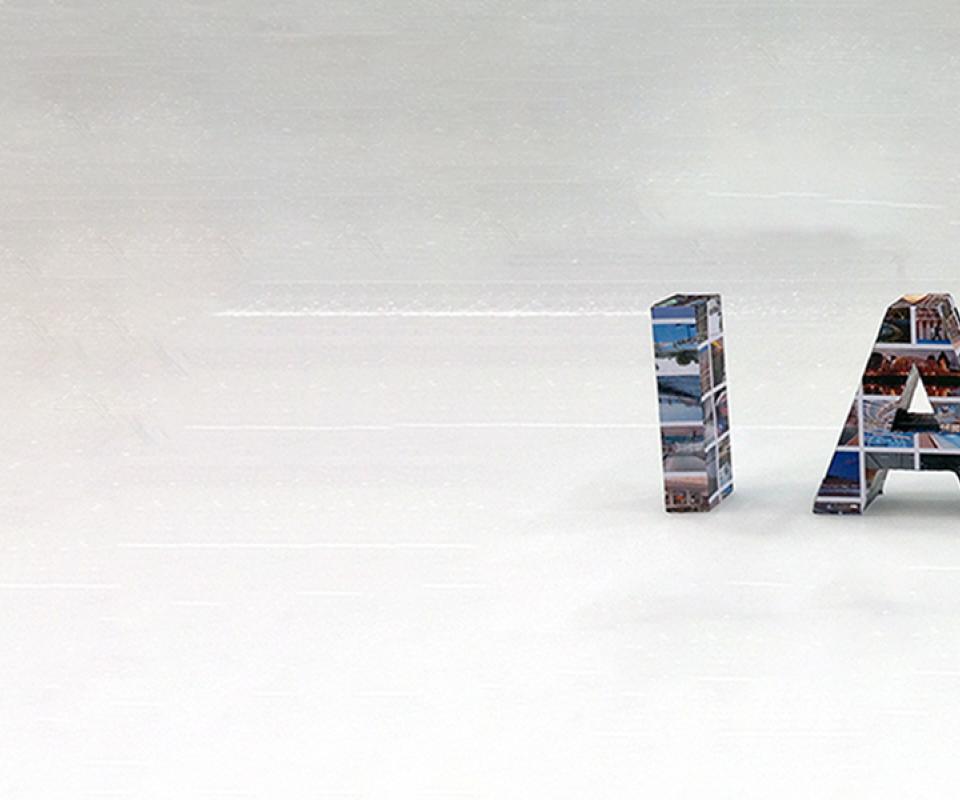Mission and intent of the IAKS Expert Circles
IAKS members are professionals who represent all aspects of active living. Many members are associated with a specific area of expertise or interest in the broad range of sports and leisure facilities. These include ownership (public and private sector), operations, planning and design, construction, equipment, and specialized sports finishes. The focus of members ranges from community-scaled facilities and programs to professional multi-purpose venues for internationals events and competitions. IAKS has established the IAKS Expert Circles as an international forum for the discussion of specific issues, trends and expectations relative to the respective area of interest.
The IAKS recognizes that while there is a shared vision of the purpose and expectations of sports and leisure facilities, this is often regional or national in its reach and often is not part of an international conversation. Members of Expert Circles will come from the membership as well as allied groups or organizations with a vested interest or area of expertise. The ultimate intent of the Expert Circles group is to provide a transfer of knowledge at planning, technical, and operating requirements for the specific area of interest.
This concept of international Expert Circles is a guideline and may also be adapted to national or regional IAKS organizations.
Swimming Pool Expert Circle
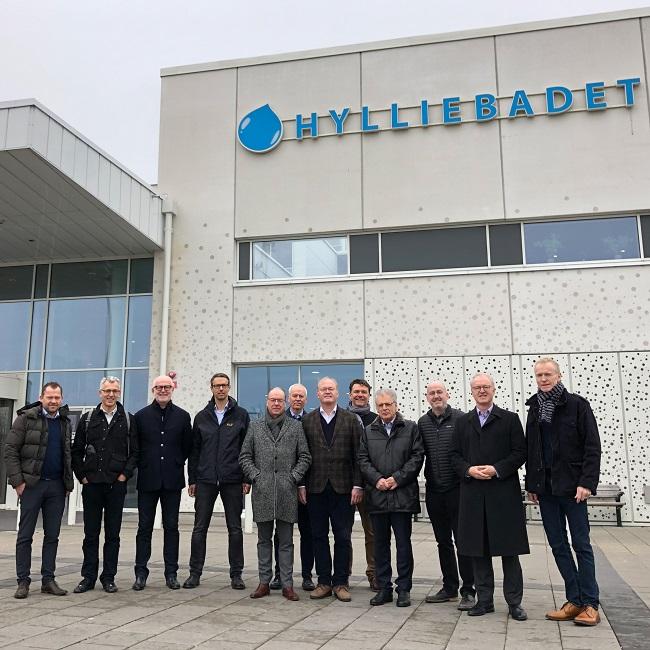
Expert Circle "Swimming Pool" at 4th meeting in Sweden in March 2019
photo: IAKS
Leader: Dr Stefan Kannewischer (Kannewischer Management AG)
Founded: June 2017
Based on the exchange of knowledge throughout their meetings in 2019, the pool experts compiled the "IAKS Future Trends for Pools". The future trends outline important developments for professionals and non-professionals such as inclusivity, places for socialising, competing demands on public finances and digital transformation, and many more.
In 2021, the "International Pool Case Studies" were released, presenting real-life aquatics facilities from various countries – one that is either typical of the country or a prime example of emerging best practice.
The experts meet once or twice a year to discuss country-specific aspects from technical issues to visitor behaviour. How are pool projects successfully implemented? How can targets be achieved across the entire pool lifecycle?
Sports Hall Expert Circle
Leader: Karin Schwarz-Viechtbauer (OEISS) and Harald Fux (Raumkunst)
Founded: April 2019
The Sports Hall Expert Circle is dedicated to discuss:
- How much standardisation do sports halls need?
- How suited at all is the standard sports hall to modern needs?
- What risks and opportunities does standardisation offer?
- The development of modern modules for usage patterns and spatial qualities as well as their implementation in decision-making processes and planning procedures is necessary.
There is a clear need for adaptable, modularised and mobilised exercise spaces that are in the right balance with standard sports halls. Since there is a direct correspondence between the individual’s experience of exercise and the exercise space, attractive and modern models for exercise spaces and sports halls must be created, both in terms of sports function and design.
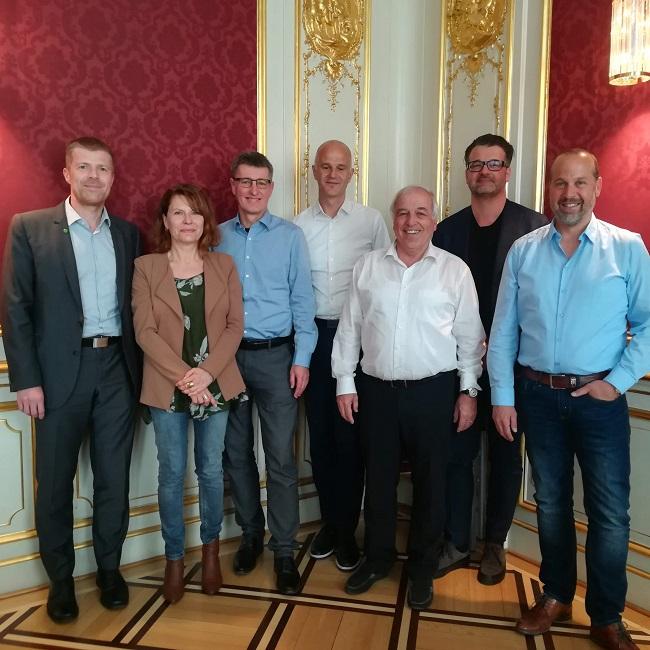
Expert Circle "Sports Halls" at first meeting in Austria in April 2019
photo: Hamburger Sportbund
from left to right: Klaus Meinel, Karin Schwarz-Viechtbauer, Bernard Kössler, Flemming Overgaard, Roger Gut, Harald Fux, Jürgen Widler
Ice Rinks Expert Circle
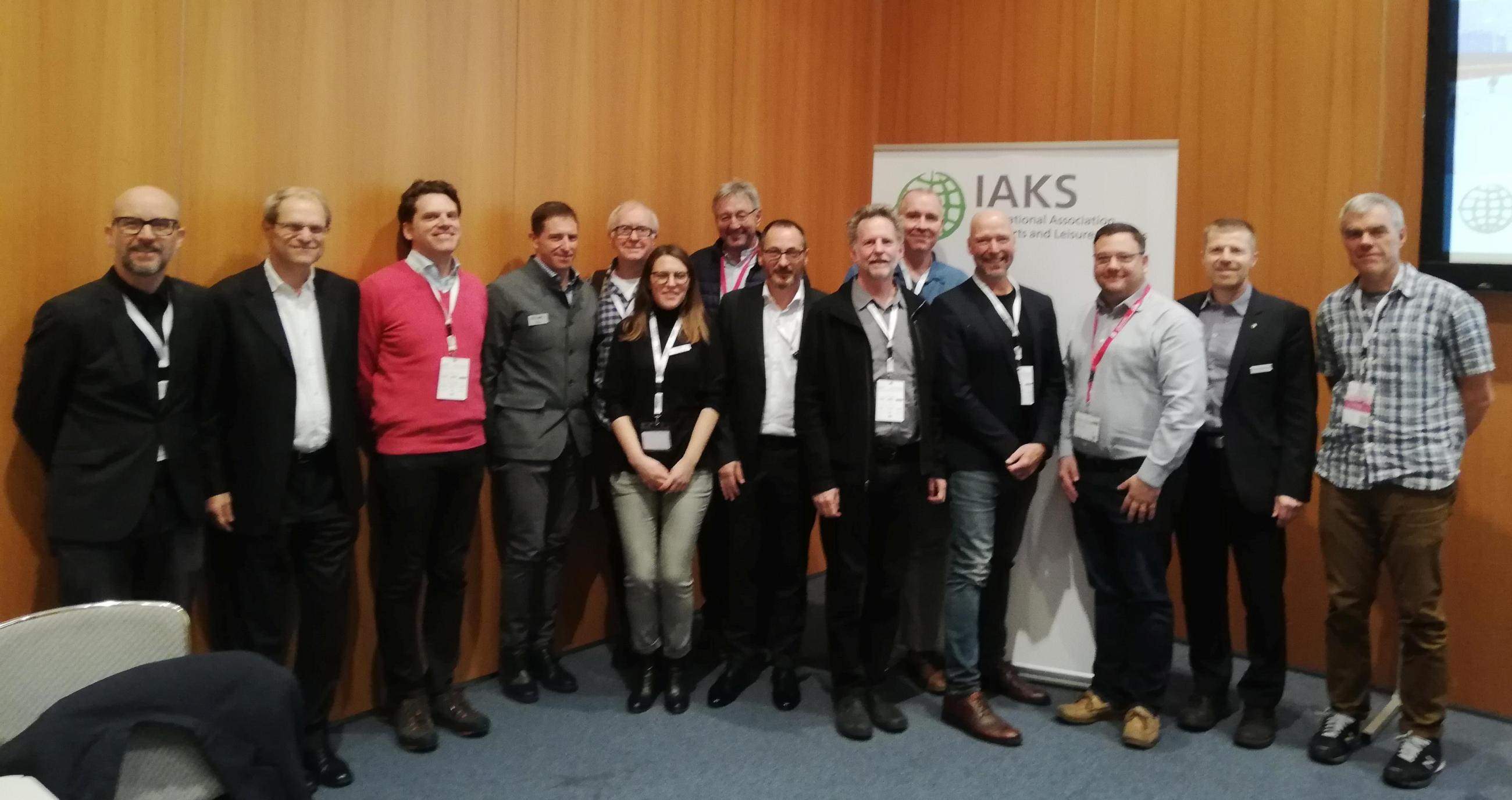
Leader: Mark Hentze (HDR Architects Inc.)
Founded: November 2019
The Ice Rinks Expert Circle gathers international experts who design, supply, install and operate ice facilities either permanent or temporary.
The participants identified differences between North American and European approaches. The development of ice facilities in North American and especially Canada is a vital part of the sports and recreation experience. As part of strategy for programming and operational efficiency, there is a tendency to building double pads as a minimum with triple and quadruple pads gaining in popularity. In Europe however, there is very little development of community arenas driven by programmes. Instead, there is typically some level of spectator seating so the facilities tend to offer both sports programmes and ticketed sports events. There is a fundamental difference between European and North American approaches with Europeans using a direct refrigeration system, while North Americans use an indirect one.
Stadia and Arenas Expert Circle
Leaders: Javier Dávila de Eusebio from IDOM (Spain) and Mike Trice from Populous (UK)
Founded: September 2020
The kick-off meeting of the Stadia and Arenas Expert Circle was held via an online meeting due to Covid-19. Twelve experts from eight countries met to discuss “How will Covid-19 affect stadium designs?”.
During the round of introductions, participants presented themselves and informed about the current lockdown situation of stadia and arenas in Argentina, Australia, Brazil, Germany, South Africa, Spain, the United Kingdom and the United States.
Outdoor Sports Surfaces Expert Circle
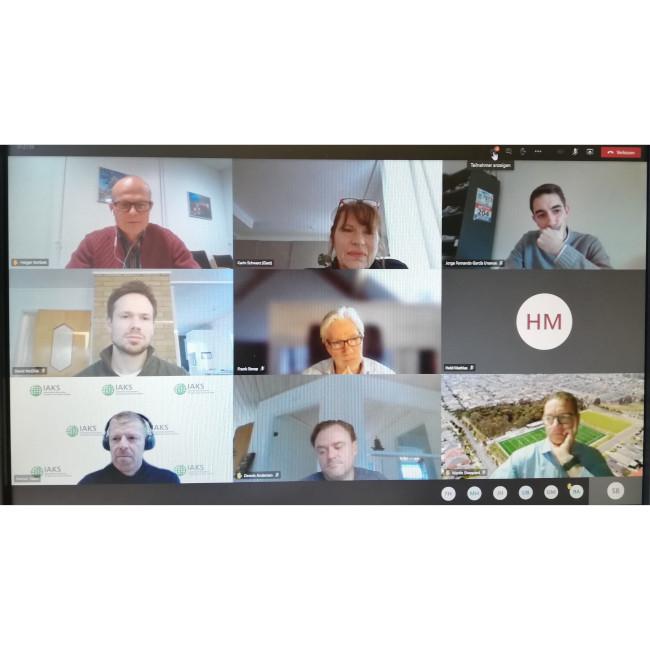
(from left to right, starting at top): Holger Kortbek, Karin Schwarz-Viechtbauer, Jorge Garcia Unanue, David McGhie, Frenk Stoop, Klaus Meinel, Dennis Anderson, Martin Sheppard
Leaders: Karin Schwarz-Viechtbauer (Austrian Institute for School and Sport Facilities / ÖISS) and Martin Sheppard (Smart Connection Consultancy, Australia)
Founded: December 2020
At the kick-off meeting on 3rd December 2020 fourteen experts from eight countries met virtually and discussed current challenges for synthetic turf systems.
The Expert Circle meeting concluded by identifying three main topics for the future work in 2021 of the group:
- Creating a “synthetic turf library” including all recent research findings, studies, documents, standards from around the world;
- Discussing and identifying performance standards for different user groups, climatic conditions and operator’s abilities – not everybody needs “the best product of all”;
- Collecting information about maintenance, including different approaches and redefining what “good maintenance” means, with a focus on the outcome of maintenance under varying local circumstances.
Expert Circle for Nature Activity Areas
Leader: Holger Kortbek, Gladsaxe Municipality (Denmark)
Founded: 11 May 2021
Outdoor activity has become very popular - due to Covid-19. The experts stated a rising awareness on the risk that the number of users could be a conflict compared to the environment that is used. Different user groups could cause conflicts with each other. What used to be the work by volunteers i.e. the trails and tracks (the infrastructure), could become a service to be provided by the municipality.
The expert circle members agreed to dedicate their future work to develop some guidance in order to support municipalities in embracing the new demand for nature activity areas infrastructure.
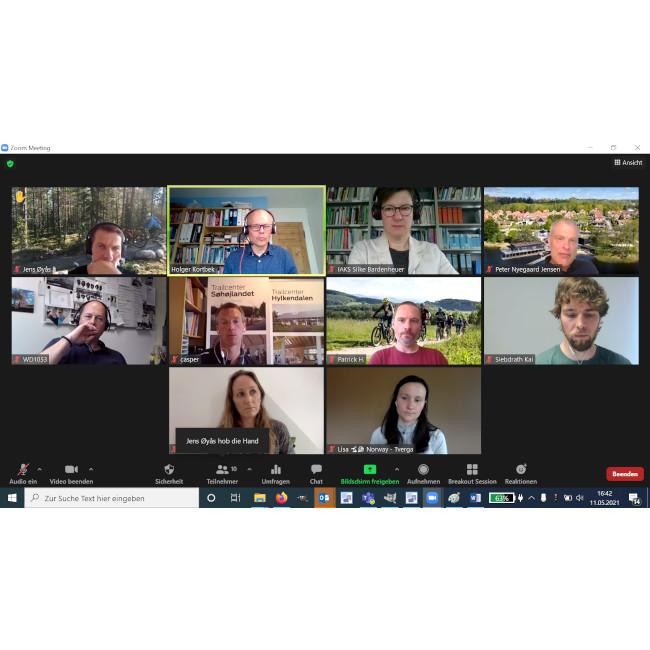
Expert Circle for Urban Activity Areas
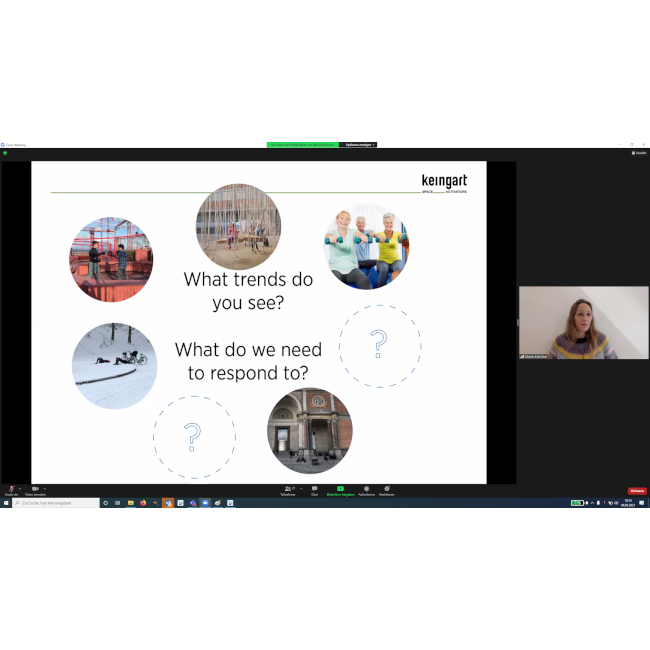
Leaders: Maria Keinicke / KEINGART architecture) and Holger Kortbek (Gladsaxe Municipality), both from Denmark
Founded: 4 May 2021
18 experts from eight countries discuss the latest developments in urban physical activity, and the expectations towards urban activity areas by users and public authorities. Cities are growing in size and number of inhabitants, building sites are expensive. Sport and leisure areas need to be prioritized at an early stage to secure public realm, open to everybody, low-treshold. User groups and their specific needs might create a conflict.
